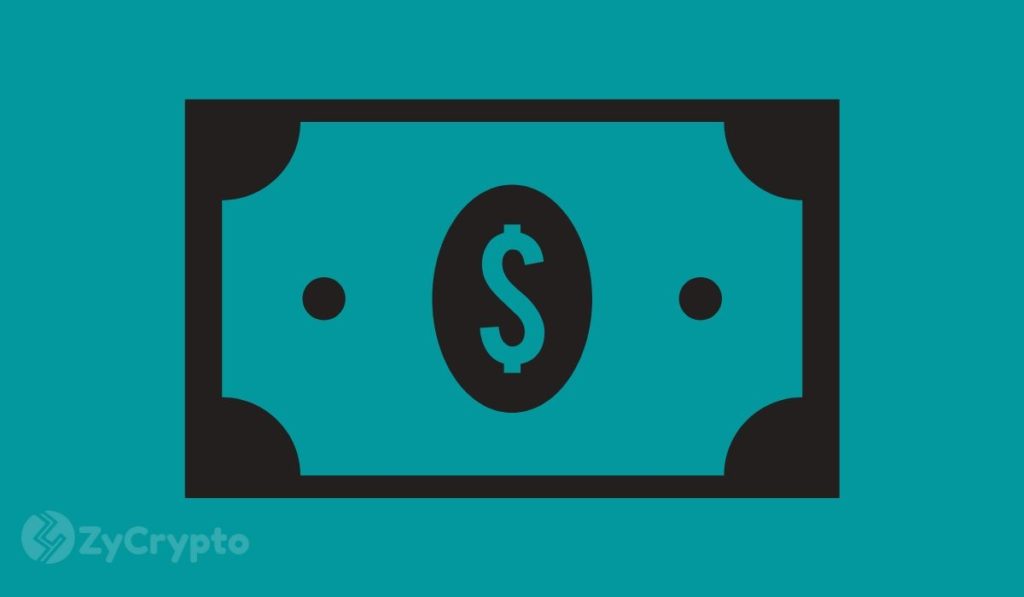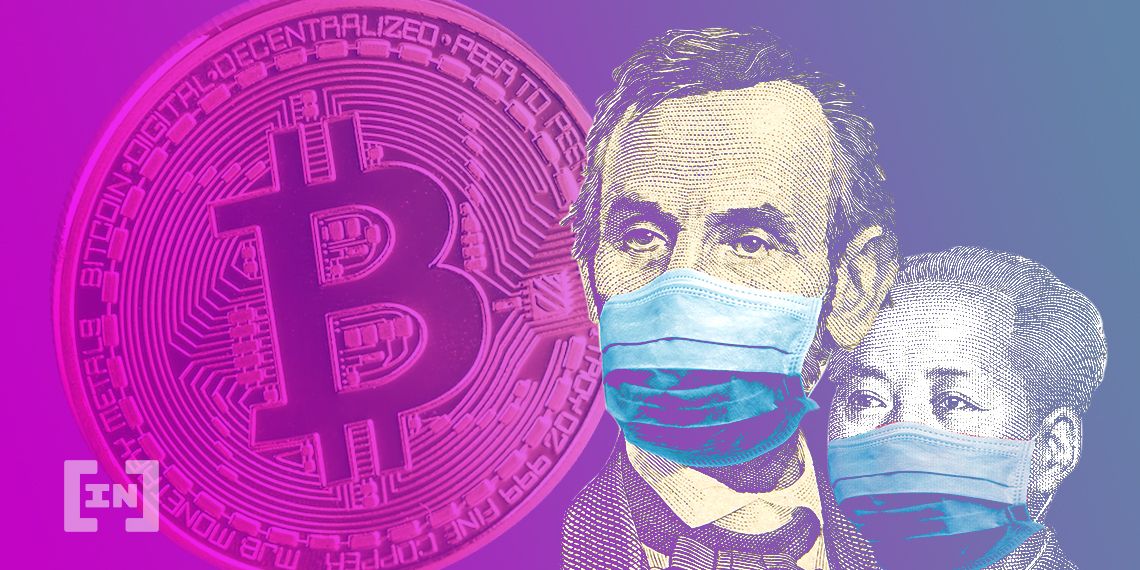2020-6-13 13:43 |
Globalisation and modern technology have arguably allowed the COVID-19 virus to spread like wildfire, threatening to burn the very foundation of our economy.
As nations begin to feel the strain, printing more money in a bid to stimulate the economy will be the decision of many. Although this approach may solve some immediate issues, it will undoubtedly lower the value of fiat currency.
To gain a better understanding of COVID’s impact on Bitcoin, we interviewed some of the greatest minds and experts who operate at the top tiers of the cryptocurrency industry and are recognised as leading authorities in their respective fields.
Here, we will learn their view on how the world might look post COVID-19 and how Bitcoin will be integrated within our global financial structure.
Meet the Experts Yoni Assia – CEO of eToroYoni is the CEO of eToro, the world’s largest social investment network. He has shown an interest in finance and computer science since his youth and so decided to merge his passions. It was this very passion along with the social revolution, which led to the founding and development of eToro’s investment network, where users connect, share, trade and invest in the world’s financial markets. Yoni is as passionate about his business, as he is for his family, wife plus 4 kids, which often results in excessive use of the word awesome, and hi-fives around the office. It’s this young CEO’s vision to disrupt the old banking industry and replace it with a new online transparent and social financial system for the benefit for everyone. Yoni is a member of the YPO, and was included by Financial News in its prestigious Fintech 40 ranking and by City A.M. as a Fintech 100 top influencer. Yoni holds a B.Sc. in Computer Science and Management and an MSC in Computer Sciences.
Simon Peters, eToro market analyst and crypto expertSimon is a cryptoasset analyst at eToro, with a detailed knowledge of crypto markets and the crypto industry. In his role at eToro, he also helps HNW clients with their investments in cryptoassets. Simon has a degree from Brunel University London in Mechanical Engineering, and has a CFA UK Level 4 Certificate in Investment Management.
Ciara Sun, Head of Global Markets at Huobi GroupCiara Sun oversees the company’s global expansion across various business segments, including global institutional business, emerging markets, and more. She is highly experienced in financial analysis, strategic consulting, and corporate management, having worked across multinational consulting companies such as Boston Consulting Group, Deloitte Consulting, and Ernst & Young.
Prior to Huobi, she advised Banking and Capital Markets groups for 15 major banks and performed investment analytics to support clients with billions of dollars of AUM, including hedge funds, private equity firms, and investment management corporations. She holds an MBA in Financial Analysis.
Wayne ChenWayne Chen is CEO of Interlapse and Founder of virtual currency platform, Coincurve. Wayne is an early adopter and investor in Bitcoin, Blockchain and cryptocurrencies. Previously as Senior Director, Head of Product at nCrypt (formerly nTrust), he designed and developed one of the first Bitcoin wallet and Exchanges in Canada.
Jerry ChanA 15-year veteran of Wall Street technology, Jerry Chan is now CEO of BSV blockchain service provider, TAAL. Jerry’s vision is that blockchain technologies will revolutionise the existing financial and economic markets, kickstarting a new era of monetisation of the internet.
How has the coronavirus impacted cryptocurrency projects?With blockchain being such a nascent technology, there are hundreds of crypto projects that may never get off the ground in light of the current pandemic. However, some other projects have undoubtedly increased in relevance as the crisis has continued to unfold.
Yoni Assia, CEO of eToro, identifies COVID-19 as the cause for an unprecedented global market downturn, the effect of which was initially felt in the crypto sphere along with the traditional markets. As time progressed, however, he has seen more and more investors turn toward Bitcoin.
Yoni stated, “Since measures were announced by the Federal Reserve to introduce unlimited quantitative easing in an attempt to stem the downward spiral of global economies, many investors have turned to Bitcoin as a hedge against a depreciating dollar.”
Yoni also believes that the pandemic has led to a lot of interest in a Universal Basic Income (UBI). “eToro sponsors a project called GoodDollar whose goal is to produce a framework for delivering global, sustainable, and scalable universal basic income through blockchain technology.”
GoodDollar is an inspired idea that incentivises new users to enter the digital asset space by giving away small amounts of basic income, ensuring that everybody has access to some form of digital asset. Yoni has always perceived the unfair distribution of wealth as the most critical of economic challenges. He feels that the coronavirus may well be the catalyst that compels us to deal with this important social issue.
Jerry Chan stated that “the biggest impact is the shutdown of import and export and general freedom of movement of goods and people between countries. This has a severe impact on the ability of a global hashing data centre operation to be able to manage and grow its fleet.”
Ciara Sun shares a similar view with Yoni regarding quantitative easing. She also added, “Beyond the validation for cryptocurrency projects, coronavirus has helped the best projects rise to the top as the weaker ones are weeded out. Mirroring the traditional startup ecosystem, the current economic environment is highlighting weaknesses in the business models of many crypto and blockchain projects. As a result, we will come out of this with a much more sustainable crypto ecosystem that’s driven by a project’s actual value and contribution to the ecosystem rather than market hype and speculation.”
And so, while the coronavirus has caused a great deal of hardship for many industries throughout the world. For cryptocurrency, it seems to be separating the wheat from the chaff. Projects that have a weaker foundation will struggle. In contrast, the more well-established coins with increased relevance will continue to attract those who wish to protect their money from an impending recession.
Do you think the coronavirus has supported or discredited the idea of Bitcoin as a ‘safe haven’ asset?There has been a mixed bag of opinions recently over whether Bitcoin has become the ‘safe haven’ it has often been described as.
Simon Peters, market analyst for eToro agrees with eToro CEO Yoni Assia, that at the start of the pandemic, cryptocurrency market prices seemed to coalesce with traditional stocks and fiat, but then a shift took place.
“Interestingly, this is backed-up by eToro’s platform data, which shows a 77% increase in new registrants whose first action was to invest in Bitcoin. As the price of Bitcoin is travelling in the same direction as gold, you could argue investors view it as a safe haven asset.”
Peters also reminded us that Bitcoin shares similar characteristics with gold. They each have a finite supply, both are decentralised, and neither are negatively affected by inflation. Bitcoin costs much less to store and is more easily divisible. Peters added, “Bitcoin requires vault-like storage to protect it from thieves, but it only ever takes up data. Therefore, it is unsurprising that Bitcoin is commonly referred to as digital gold.”
Jerry Chan and Wayne Chen had differing opinions on this question. Chan told us, “The coronavirus has certainly contributed to discrediting the idea of Bitcoin as a ‘safe haven’ asset in my view. While Bitcoin was expected to be a ‘flight to quality’ asset, much like gold, it declined in line with the stock markets, which has led to increased mistrust.”
Whereas Chen stated, “The coronavirus has undoubtedly supported Bitcoin as a safe haven and a store-of-value asset. During any economic uncertainty, people immediately divert to alternative assets such as gold, and now Bitcoin to prevent currency erosion.”
Finally, we turn to Ciara Sun to see if she could settle the debate. Sun agreed with Peters, stating that Bitcoin had outperformed traditional markets like the S&P 500 on several occasions, revealing that cryptocurrency can, and often does, “decouple from macroeconomic movements.”
She cited Paul Tudor Jones as a prime example, who recently declared that “he has 1-2% of his portfolio invested in Bitcoin.” Ciara acknowledged the truth behind Jerry Chan’s view, but went on to say that after the initial drop in value, Bitcoin had recovered. “Shortly after the March crash, there was some doubt from the traditional finance sector, but the ensuing weeks have proven Bitcoin to be quite resilient.”
2020 is potentially a big year for cryptocurrency. The economic impact of the lockdown, the highly anticipated halving event, and even a US election due at the end of the year. In what way could all this influence Bitcoin for 2021, in terms of both price and mining?
Peters believes that halving the block reward may see a “proportion of mining operations switch their hash power to mine similar cryptos such as Bitcoin Cash and Bitcoin SV” to remain profitable.
He feels that a dip in network hash rate for Bitcoin will be short-lived; however, most miners in countries like China will still run at a profit and look to scale up their operations. Peters also reflected on recent events, “Combining what’s happening on the global financial stage, with the Bitcoin halving, and crypto asset education levels increasing among investors thanks to more media coverage, this could provide the perfect storm for Bitcoin prices to reach new highs in the next 12 to 18 months.”
CEO of Interlapse, Wayne Chen believes that mining hash rates that have recently hit all-time highs shows great confidence for Bitcoin. Chen also looked to the past performance of the leading cryptocurrency after previous halvings took place, stating, “Historically, Bitcoin prices always surge significantly following a halving event. The increase may not be immediate but will likely be guaranteed until the next halving.”
Jerry Chan believes that “2020 will be a massive year of transformation in mining.” Validating a point already raised by Simon Peters, Chan announced that TAAL has “seen a massive influx of miners shift to BSV.” The blockchain service provider had processed a record-breaking 309MB block on Bitcoin SV, containing 1.1 million transactions in the week before this interview took place.
Ciara Sun feels that it is difficult to predict the state of the market next year. However, she does think that the future of Bitcoin looks promising, “given the current economic environment.”
Do you think that the COVID-19 pandemic has highlighted a real need for cryptocurrency and blockchain technology?Yoni Assia believes that the unprecedented issues that arose during the spread of COVID-19 has allowed us to “see how blockchain technology and crypto assets could be used in the financial system of the future.” He also stated that ‘Fed Dollars’ could have been more easily deployed to a ‘Fed Wallet’ through which money could have been sent to people without the need of using separate banks and accounts.
He opined that, “worries over inflationary currencies like the USD dollar caused by unlimited quantitative easing measures have also provided impetus for using deflationary cryptocurrencies instead. Furthermore, furlough schemes around the world have brought the topic of UBI to the fore, similar to the GoodDollar project eToro has funded.”
Wayne Chen feels that the pandemic has thrust Bitcoin into the spotlight as both a store-of-value and a global, borderless currency. He described a likely short-term outcome where fiat would quickly lose value, while other altcoins would “follow Bitcoin’s dominating precedence.”
Jerry Chan believes that the real benefit that has been highlighted by the COVID-19 crisis lies in the all but limitless use cases of blockchain technology. He stated that “pharmaceutical companies have realised the potential application of a scalable version of Bitcoin blockchain, which can be used to track COVID-19 testing and vaccination records, cross-state and cross-borders, in a way which could be used to corroborate or validate statistics submitted to global health organisations.”
Ciara Sun agreed with this point, feeling that “healthcare organisations, governments, non-profit organisations and private enterprises struggle to efficiently collaborate on coronavirus response efforts.” From a monetary point of view, she added that “cryptocurrencies are a vital part of the cashless economy that is being accelerated by the pandemic.”
Which cryptocurrencies do you expect to survive and flourish after the danger of the virus has passed?Simon Peters was quick to remind us that “it’s important to distinguish that not all cryptos are cryptocurrencies, some [are used as a] different utility rather than used as a medium of value exchange.”
He is of the opinion that the leading cryptocurrencies, such as Bitcoin and Ethereum will remain and flourish after the danger from the virus has passed, believing that those with large market capitalisation or “unique use cases” are here to stay. The same could be said for those projects that have “the most development activity taking place.”
Peters also stated that depending on funding structure, some of the smaller, niche-based blockchain startups may not have the resources to survive. Venture Capitalists are likely to be reluctant to invest in these higher-risk companies.
Jerry Chan categorically states that the coin to watch is Bitcoin SV as he feels that “it is the only version of Bitcoin that is scalable.” Wayne Chen disagrees, believing that the pioneer and still leading Bitcoin will retain its number 1 spot and continue to flourish.
Ciara Sun stated that she doesn’t “speculate on the future of specific cryptocurrencies.” Still, she added that it is “those which have the strongest community base, most robust blockchain infrastructure and scalable token economics” that would be likely to perform well in the long term.
This article has been written exclusively by Coin Journal writer, Chris Roper, with direct quotes taken from 1:1 interviews conducted in May, 2020.
The post How will Bitcoin Perform after the COVID-19 Crisis has Passed? appeared first on Coin Journal.
origin »Bitcoin (BTC) íà Currencies.ru
|
|








